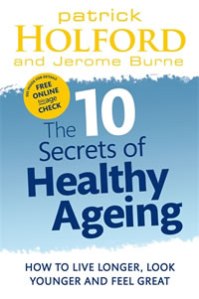So you’ve read the Daily Mail story today about how it’s possible that coconut oil can help with some of the symptoms of Alzheimer’s. No one knows for sure because the idea has never been properly tested but there is a good reason why it might work – by supplying the brain with a natural source of energy called ketones that our bodies make from fat.
But inevitably some details of the story had to be dropped. Read on for the director’s cut:
Does the Alzheimer’s brain have a glucose problem?
Several studies suggest it does. This is one of them. In April researchers at the University of Pennsylvania found that parts of the brain in Alzheimer’s patients were no longer using glucose effectively even though they didn’t have diabetes. What’s more, problems with glucose showed up in people with Mild Cognitive Impairment (MCI) and got worse as their Alzheimer’s developed. Certainly not proof the coconut oil works but it does suggest that detecting a glucose problem in the brain could help predict who was going to develop Alzheimer’s later. It doesn’t prove that supplying an alternative source of fuel to glucose would make a difference, but it does suggest it could well be worth trying.
Temporary improvement doesn’t prove anything.
“Many experts dismiss the changes reported after taken coconut oil down as spontaneous improvement,” says pioneer of this approach Dr Mary Newport . “But I have lived with Steve (her husband – profound apologies for calling him Harry in the article) and his Alzheimer’s for around 12 years and nothing happened that was anything like as dramatic as the changes that followed taking the coconut oil. He took the drug treatment Aricept for two years and I didn’t notice any effect at all. When we combined coconut oil with MCT (medium chain triglycerides) oil the change was even more striking.
The significance of the patented food Axona.
The idea that coconut oil could help is frequently dismissed for lack of evidence. But a medical food called Axona that largely consists of MCTs obtained from coconut oil has two trials supporting its use as a medical food in the States. “So it’s not at all unreasonable to suppose coconut oil should have an effect too,” says Dr Newport who is a paediatrician. “It might even have additional benefits. It also contains a saturated fat called lauric acid, found in breast milk, which has antimicrobial properties.” She dismisses the claim that the saturated fat in coconuts could put the heart at risk as “ignorant and not based on any evidence.”
Axona also raises questions about dosage. “The license for Axona is for one dose a day,” says Newport “but my experience is you need rather more than that. I give coconut oil plus MCT 4x a day. The licensing trial only involved 20 people and half improved their scores. Would more frequent dosing produce better results? We don’t know at the moment.”
The impact of pure ketones
Dr Kieran Clarke, the Oxford University metabolism and ketone expert, who is impressed by Dr Newport’s experimenting with coconut oil has found a way to make ketones in the lab that can be used directly by the body. They can deliver a much higher dose than MCTs or coconut oil. Recently Dr Newport has begun giving them to her husband Steve and says the results are extraordinary.
“It’s been like turning on a switch,” she says. “When he get the pure ketone he comes alive but as they get used up it’s as if his brain goes dark again. We give him the ketones in the evening and then he is alert and very much aware of what is going on around him. But when he wakes up in the early morning he’s pretty much back in a state of Alzheimer’s confusion.
However another dose of pure ketones and he’s soon back to how he was the night before.” It is a vivid demonstration of the difference high dose ketones could well make. But yet again large scale trials are needed to definitively prove their benefits and finding the funding is a constant problem.
Problems with the mouse model
But there is a problem with testing treatments on animals. The one researcher who is planning a human trial is Dave Morgan, professor of molecular pharmacology and physiology at an Alzheimer’s Institute in Florida. He recently ran a a trial on mice and found the oil was ineffective. But he didn’t believe that necessarily meant it wouldn’t work on humans. His reasoning is very revealing about how Alzheimer’s treatments are tested.
He points out that there are many reasons why memory and thinking decline. The two classic ones are the development of damaged proteins, known as amyloid plaques and tau tangles, but there are others such as changes linked to ageing or brain cells becoming less efficient, possibly because they can’t use glucose effectively any more.
“However because mice don’t naturally develop Alzheimer’s ,” says Morgan “they have to be genetically created to develop amyloid deposits so researchers can test drugs aimed at clearing or blocking them, which is what nearly all drugs are designed to do. What this means is that if you are testing for the benefit of say, improved energy supply via ketones, if it doesn’t clear plaque it may well not show up as having any effect. The mice aren’t a realistic model of what happens in Alzheimer’s.”
So how could coconut oil be tested?
Running a full scale trial to test the oil properly would be expensive and could take years. Is there a simpler of finding out if some people benefit? “Like other experts I’ve no idea if the oil is effective.” says Dr Emer MacSweeney, Medical Director and Consultant Neuroradiologist at Re:Cognition Health, a top Centre in London, specialising in memory loss and cognitive impairment.
“But with the new automated testing techniques we could, at least, monitor a group of patients who are taking the oil anyway and record changes in their memory and thinking. Whilst it would be difficult to attribute these changes to the sole effect of the oil, we could discover if the tests results match any benefits the carers reported.”
Are we wise to continue relying on drug companies to find a cure?
Some scientists are calling for a suspension of the private, profit-based research model in favour of a global, public-private program. “The medical-care system is going to be bankrupt by 2050 if we don’t figure out a way to delay or treat Alzheimer’s disease,” says Dr. Barry Greenberg, the director of strategy for the Toronto Dementia Research Alliance, in a recent article in the MIT Technology Review. He believes that won’t happen without a major public-private international initiative. “The competitive marketplace,” he says, “was not conceived to overcome problems of this magnitude.”



Another interesting article on the lack of interest from the PTB on coconut oil research:
Alzheimer’s Association Warns Against Coconut Oil – Member Replies “Coconut Oil Gave us our Father Back!”
http://healthimpactnews.com/2012/alzheimers-association-warns-against-coconut-oil-member-replies-coconut-oil-gave-us-our-father-back/
I’m on a healing diet (www.healingnaturallybybee.com, free website) Which reccommends 5.5 tablespoons of coco oil, raw, per day. You can melt it over food or use it to saute. I feel fabulous on it. It’s filling and gives me energy and it is helping heal my gut much more than any other supplement I have taken. Homeopathy’s been great for other ailments but not touched my digestive issues.
Try a gluten free diet, which is a real piece of meat, a real piece of fruit and a real piece of colored veggie. don’t eat anything thats been ground up and glued back to gather.
An interesting study:
http://www.ncbi.nlm.nih.gov/pmc/articles/PMC3321471/
Unfortunately, public-private partnership generally means the public funds the research while the private patent-holders reap the profits. In the US, the NIH claims to invest “nearly $30.1 billion annually” in public research: http://www.nih.gov/about/budget.htm
Are we stuck in the amyloid plaque = alzheimers theory simply because Pharma has potential drugs in the pipline to address plaques (much as the SSRI theory was built around Pharma’s drugs)?
By no means is everyone sold on the amyloid plaque theory, but they are usually the ones left screaming into the wind: http://www.lunduniversity.lu.se/o.o.i.s?news_item=5718&id=24890
The financial benefits of public investment in research should accrue to the public, where it can then be reinvested in more research.
I’ve looked at coconut oil a good bit. While there is lots of good to say there are one or two things that are wrong in the general narrative. Perhaps most significant is that coconut oil is not good at high cooking temperatures. It has a relatively low smoke point especially virgin coconut oil. Virgin coconut oil has some advantages in terms of phenol content but refined coconut oil’s higher smoke point probably makes it a better bet for cooking and for high temperature cooking another oil entirely might be even better. You don’t want to increase cancer risk from carcinogens in burnt cooking oil.
Thanks for the contribution. Not an area I know know anything about but if you are using it that’s obviously useful information
Thanks very much for writing the Daily Mail article and for providing additional background here. You may find my blog post about our experience so far of dementia/Alzheimer’s and coconut oil of interest: http://innereye.eu/obhiblog/2013/01/coconut-oil-cataclysm/ . I too had been wondering about the lack of funding research into the effects of coconut oil on dementia and wrote to our MP, the former Health Minister Paul Burstow.
He told me that £22 million has been awarded recently against a research call that he had launched when he was the Minister (see http://mediacentre.dh.gov.uk/2012/12/21/pioneering-dementia-research-projects-receive-22-million-government-boost/ ). He added that he will see whether the issue of coconut oil is being explored. He also initiated a Parliamentary Debate on dementia a couple of weeks ago.
In the Daily Mail article, you quote doctors advising against taking too much coconut oil. Unfortunately, they, the NHS and other health organisations lump coconut oil with other saturated fats. However, they may have their facts and fats wrong: http://sundaytimes.lk/111127/BusinessTimes/bt08.html .
Thanks also for highlighting the Alzheimer’s Society’s paradoxical refusal to research coconut oil on the grounds that “there is not enough evidence to suggest that coconut oil or ketones have benefits for people with Alzheimer’s”. If there was enough evidence, why would anyone still need to research it … ?
Every one wants to spend $50 million doing research. Not necessary for a $6 bottle of coconut oil. Try it yourself. Take a tablespoon of coconut oil and in one hour check your handwriting. My handwriting smoothes out like i was 40 yo. If it works, use it.
While the ‘criminal like’ pharmaceutical companies donate (in my opinion bribe) to David Conman’s party (or whichever party is in power here and in the EU then nothing will change. Why dont we start a campaign to collect more money than the Big Pharma. to donate to these parties. Surely our ‘bribes’ would be just as acceptable?
Publicly funded research into dementia and Alzheimer’s has, until now, been focused on understanding the biological disease processes which is understandable; but there is a growing consensus that research needs to be broadened out to include treatments and therapies, and care support interventions – which ones work, in what combinations, and are they context specific. A multi-pronged approach for research would be better in just the same way that a multi-pronged approach to assessment, diagnosis, treatment and care support is the best solution for people with cognitive problems and their families.